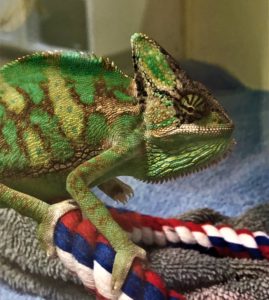
“Elliott”, a 5 ½ month old veiled chameleon, came in for us to assess some pink tissue that was protruding from his vent. On examination it was a hemipene that had become impacted and inflamed. When we tried to replace it the other one would pop out too! “Elliott” was admitted to the hospital and given fluids, pain medication, and an antibiotic injection. The next day he had surgery to amputate both hemipenes. He was under anesthesia and had local anesthetics. The hemipenes came off easily using radiosurgery and “Elliott” recovered well! He has been doing great at home and will be visiting us for a progress exam next week.
What are hemipenes?
Hemipenes are a reproductive structure in lizards and snakes. They are paired blind ended pouches that are everted out of the vent during mating activity.
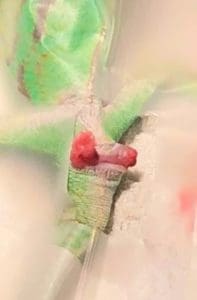
“Elliot’s” prolapsed hemipenes ready to be surgically removed.
Why can they prolapse?
Hemipenes can prolapse (stick out when they shouldn’t and remain stuck) for numerous reasons. Medical causes include neoplasia, infections, impactions, chronic reproductive behavior, neurologic conditions, and trauma. Other causes can be related to the environment and husbandry. These include low blood calcium levels (related to UVB light supplementation and calcium content of food), low environmental temperature, dehydration, and contamination of the substrate of the enclosure.
How do we diagnose it?
Snakes and lizards have a common area, the cloaca, that their reproductive, urinary, and gastrointestinal tracts empty into. All of these materials can then be passed externally through the vent. The appearance of the prolapsed tissue is the best way of determining that it is originating from the hemipene. Hemipenes are located on the outside edges of the vent and in their normal position extend towards the tip of the tail. It is also important to assess for potential underlying causes by obtaining a thorough husbandry history, intestinal parasite screening, blood work, and diagnostic imaging. Hemipene prolapse only occurs in male animals, though females can have reproductive prolapse as well.
How is it treated?
Initial treatment of a prolapse involves helping reduce the swelling and keeping the tissue moist. These tissues can quickly become dry and devitalized when exposed outside of the body. Some cases can be replaced manually under sedation and have tacking sutures placed to narrow the vent opening. These sutures are removed later once the underlying issue has been addressed. Amputation is recommended in cases where the tissue is devitalized, repeatedly prolapses, or has associated growths. The surgery was elected in “Elliott’s” case due to the severe inflammation and the fact that the other hemipene would prolapse when reduction was attempted.
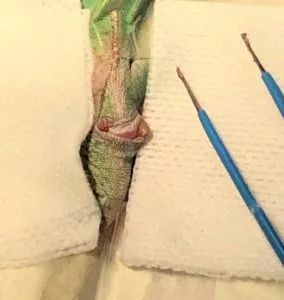
After surgery, the area looks great.
How is it prevented?
We prevent what we can. While we can’t control things like tumors or some neurologic conditions we can be sure to screen our reptilian friends regularly for intestinal parasites and provide optimal husbandry.
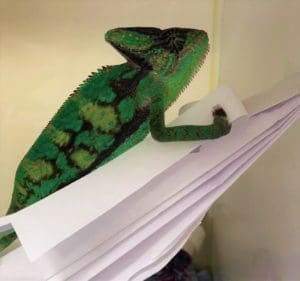
“Elliott” recovered well from anesthesia and was ready to go home a few hours later.
What if my pet has a hemipene prolapse at home?
It is vital to keep the prolapsed tissue moist with a water-based lubricant like KY jelly, NOT a petroleum jelly. Put your pet into a clean hospital box with paper towels as substrate and contact us as soon as possible. The quicker we act, the better outcome we will see.
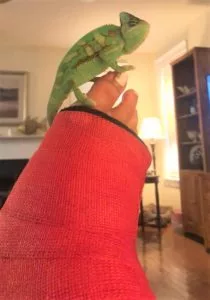
“Elliott” back home with his owner, who has some healing of her own to do. See you soon!

About Us
Our exotic animal hospital is dedicated exclusively to the care of birds, exotic small mammals, reptiles, and even fish! We can offer everything your pet needs for a healthy and happy life, from wellness care and grooming to diagnostics and dentistry, but we can also provide emergency care during our operating hours, along with specialized treatment for referred patients.
